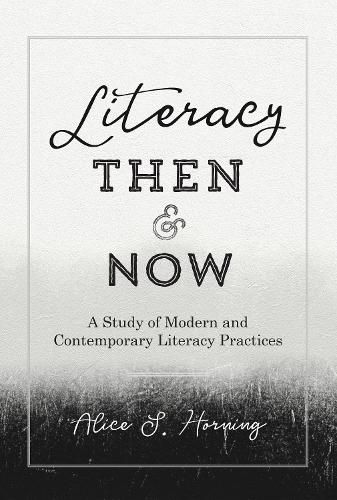Readings Newsletter
Become a Readings Member to make your shopping experience even easier.
Sign in or sign up for free!
You’re not far away from qualifying for FREE standard shipping within Australia
You’ve qualified for FREE standard shipping within Australia
The cart is loading…






This title is printed to order. This book may have been self-published. If so, we cannot guarantee the quality of the content. In the main most books will have gone through the editing process however some may not. We therefore suggest that you be aware of this before ordering this book. If in doubt check either the author or publisher’s details as we are unable to accept any returns unless they are faulty. Please contact us if you have any questions.
This book argues that the psycholinguistic nature of literacy is universal and seeks to recouperate late nineteenth and early twentieth century techniques for addressing it. After defining the key terms of this study, the book goes onto survey various types of literacy education in the United States. First, it examples various religious organization and their methods for supporting literacy, focusing on the main religious groups in the United States in the Modern period: Christianity, Judaism and Islam. The book then discusses contributions made by NGOs, demonstrating the importance and limitations of reading groups, literary societies, settlement houses, unions, and corporations. Finally, the book examines government managed educational programs in K-12 schools as well as colleges and universities.Ultimately, this book argues, the psycholinguistic character of reading remains consistent over time, place and delivery syste. While sponsors play a key role, self-motivation is a driving force in literacy development. Although literacy education is in an on-going state of transition, the need for critical literacy continues to be an urgent, widespread and essential goal.
$9.00 standard shipping within Australia
FREE standard shipping within Australia for orders over $100.00
Express & International shipping calculated at checkout
This title is printed to order. This book may have been self-published. If so, we cannot guarantee the quality of the content. In the main most books will have gone through the editing process however some may not. We therefore suggest that you be aware of this before ordering this book. If in doubt check either the author or publisher’s details as we are unable to accept any returns unless they are faulty. Please contact us if you have any questions.
This book argues that the psycholinguistic nature of literacy is universal and seeks to recouperate late nineteenth and early twentieth century techniques for addressing it. After defining the key terms of this study, the book goes onto survey various types of literacy education in the United States. First, it examples various religious organization and their methods for supporting literacy, focusing on the main religious groups in the United States in the Modern period: Christianity, Judaism and Islam. The book then discusses contributions made by NGOs, demonstrating the importance and limitations of reading groups, literary societies, settlement houses, unions, and corporations. Finally, the book examines government managed educational programs in K-12 schools as well as colleges and universities.Ultimately, this book argues, the psycholinguistic character of reading remains consistent over time, place and delivery syste. While sponsors play a key role, self-motivation is a driving force in literacy development. Although literacy education is in an on-going state of transition, the need for critical literacy continues to be an urgent, widespread and essential goal.